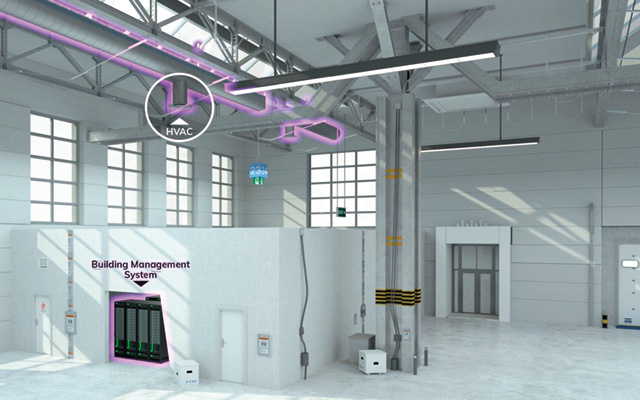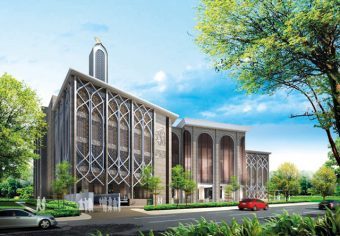
Sophia Bhaumick, Senior Marketing Manager at Arloid Automation, explains how the technology behind their innovative Artificial Intelligence is driving HVAC optimisation in manufacturing buildings.
To drive environmental business imperatives, building management needs to get smarter. Many businesses in industrial and manufacturing sectors are reassessing the way they approach building management. Not only do these types of commercial buildings come with specifically required conditions and thermal ranges, but the cost of energy is skyrocketing making energy savings even more fundamental to profitability.
More than that, businesses are becoming more and more aware of the impact of their activities on the planet. The built environment consumes vast amounts of energy; driving 59% of electricity use in the UK and 23% of total emissions. Clearly, if the target of Net Zero by 2050 is to be truly within reach, our buildings need to get smarter.
Understanding what technology is available to help achieve energy saving ambitions is essential for building managers and business owners. Maintaining the right equilibrium between user comfort and energy consumption can be facilitated using innovative AI and the power of deep reinforcement learning.
Building management systems optimised using AI have countless advantages over traditional methods. Able to respond to environmental states using live data rather than estimates or averages, they no longer need to operate reactively. Instead, the requirements of the building can be anticipated and adjusted before a problem forms, dramatically reducing energy consumption. Let us explain how this cutting-edge technology works.
Building modelling engineers create highly accurate virtual replicas of the commercial building, duplicating every aspect of the structure in minute detail and taking into account a diverse range of information including construction materials and occupancy rate.

The building must be split into micro thermal zones to provide the AI with more nuanced control over HVAC infrastructure.
Depending on the complexity of the building and the HVAC system, this can take anything from a few days to a month. The pinpoint accuracy of this replica is integral to the success of the real building’s future systems management.
Once the model is complete, the ‘Digital Twin’ is ready to be calibrated. Simulation cycles are set up and begin to run and the AI is trained using deep reinforcement learning. Through around 300,000 cycles, the AI collects live data and compares this to simulation results, after which it calibrates itself and simulates again. Throughout this process, a precise algorithm enables the building model to optimise its thermal behaviour in response to any eventuality.
At the end of the process, the AI is able to manage HVAC systems automatically, without human intervention. Personalised data and the management of many different devices and micro zones means the algorithm can define the best settings for each area, minimising comfort index deviation and reducing energy consumption.
AI built using Arloid’s process has been found to deliver energy cost savings of around 30% and a carbon footprint reduction of up to 30% – and not at the cost of occupant comfort. In fact, occupant comfort in buildings who have had their HVAC systems optimised using Arloid technology has been proven to increase by 60%.
It is time for the built environment to adapt and modernise with the help of the latest technology. Arloid’s advanced AI is leading the market when it comes to optimisation speed and energy savings. The commercial buildings of tomorrow will be smart and automated, and the technology to achieve that is already here. With innovative arloid.ai, significant energy savings are possible whatever the size, complexity, and function of the building. This is the future of building system management – but why wait? Building and maintenance engineers can be ahead of the game now.
arloid.com | sophia.bhaumick@arloid.com | t: +44 (0) 7376 793377

